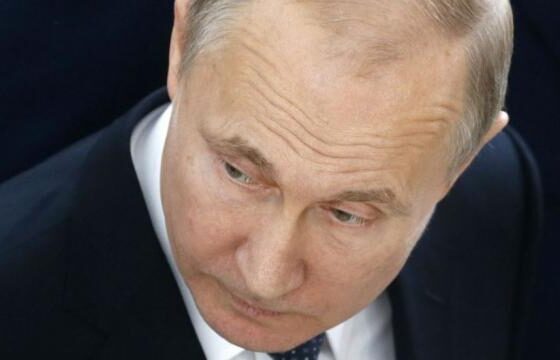(PONARS Eurasia) Providing things like healthcare and education are among the most basic services that modern governments provide. This makes the study of what is sometimes lumped together as the “welfare state” critical to understanding modern governments. A recent panel at the annual conference of the Midwest Political Science Association in Chicago highlighted some of this research.
As part of a central research project are at the International Center for the Study of Institutions and Development at the Higher School of Economics in Moscow and with funding from the Russian National Science Foundation, Israel Marques, and Thomas Remington have been researching vocational education programs throughout Russian including their political and economic implications. Marques presented research at MPSA showing public-private partnerships do better when state capacity is stronger and there is more competition in a Russian region. In related work about vocational education, Remington demonstrates how certain regions of Russia were able to overcome collective action dilemmas in modernizing their labor forces in order to take advantage of federal policies encouraging a German-style dual education model.
The vocational education research by Marques and Remington lends insight into how policymaking and federal-regional relations work in an authoritarian context where the central government is clearly the driving factor. Even in such a context, regional variation matters tremendously for local policy outcomes. Other recent work by Remington further illuminates differences in authoritarian policymaking by demonstrating why pension policy is characterized by sudden changes while in China pension policy is made through a variety of partial and overlapping changes.
Related to this, my own work with Israel Marques examines the foundations of support for social policy in countries like Russia where government institutions are largely thought to be corrupt and inefficient. Using experimental evidence—conducted both in computer labs and as survey experiments—we find evidence that higher-earners support government redistribution more than they otherwise might if they themselves can more easily avoid paying taxes. In other words, rich people may be fine with the government providing all kinds of public goods as long as they do not have to pay for them.
Work on social policy in the post-communist arena translates to both other regions and other important issues in political science. For instance, research on Asian welfare states by Wei-Ting Yen has emphasized that economic insecurity—the individual risk of falling beneath the poverty line—rather than poverty explains support for the welfare state. This research—like my own with Israel Marques—suggests that many assumptions about why and which welfare programs individuals support have missed important key characteristics.
More broadly, the ability to provide responsive social policies matters for democratization. Both institutional factors influencing—including how center-regional relations work—and individual preferences for social policy, then, may be directly connected to what type of regime emerges. For instance, Flores and Nooruddin show that holding elections proves to be good for democracy when there is a strong history of democratic rule, fiscal resources exist to allow for responsive policies, and the country is free of conflict. Building on this, we might suspect that poorly functioning government institutions undermine the fiscal space and responsiveness of governments which we would prefer to see implementing better designed and better funded social policies which could, in turn, help democracy work better. In short, bad institutions and the subsequently bad social policies may be an important part of the story for why democracy fails. In trying to understand good regimes, we should perhaps first understand good policies.
Sarah Wilson Sokhey is an Assistant Professor in the Department of Political Science at the University of Colorado, Boulder, a Faculty Associate at the Institute of Behavioral Science, and an Associate Fellow at the International Center for the Study of Institutions and Development at the Higher School of Economics in Moscow, Russia.
Also see by Sarah Sokhey, “When Does Corruption Matter?” April 26, 2018.











